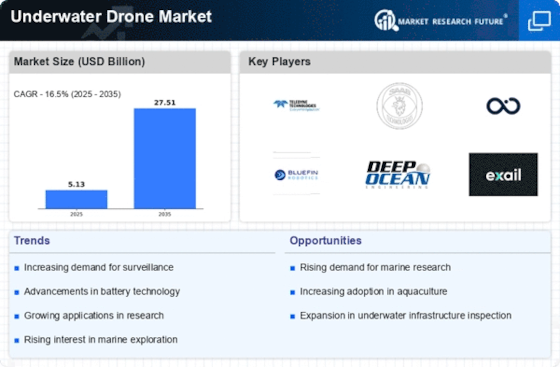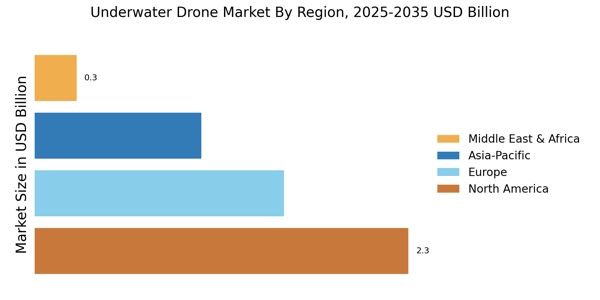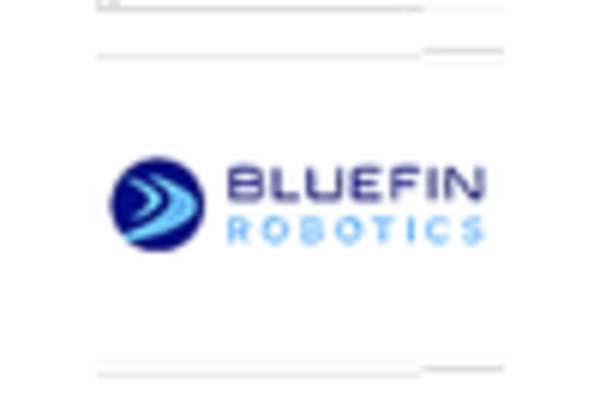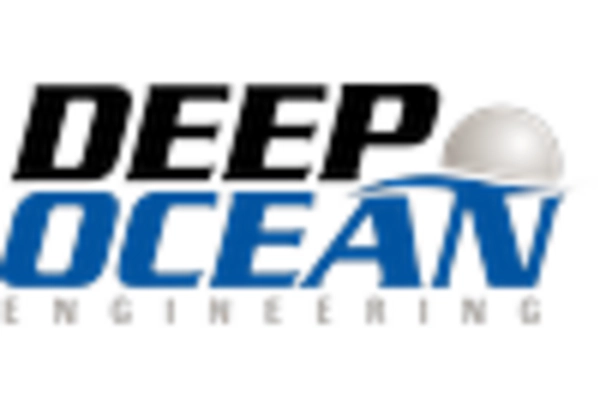Leading market players are investing heavily in research and development in order to expand their product lines, which will help the Underwater Drone Market grow even more. Market participants are also undertaking a variety of strategic activities to expand their footprint, with important market developments including new product launches, contractual agreements, mergers and acquisitions, higher investments, and collaboration with other organizations. To expand and survive in a more competitive and rising market climate, the Underwater Drone industry must offer cost-effective items. Manufacturing locally to minimize operational costs is one of the key business tactics used by manufacturers in the Underwater Drone industry to benefit clients and increase the market sector. In recent years, the Underwater Drone industry has offered some of the most significant advantages to medicine. Major players in the Underwater Drone Market, including ECA Group, The Boeing Company, Deep Ocean Engineering, Inc., TechnipFMC plc, Saab Seaeye Ltd, Oceaneering International, Inc., Kongsberg maritime, Bluefin Robotics Corporation, Teledyne marine, Lockheed Martin Corporation, and others, are attempting to increase market demand by investing in research and development operations. The Boeing Co. (Boeing) creates, develops, and produces military and commercial aircraft, as well as technologies for space, defense, and security. For commercial use, the corporation offers different models of aircraft, including business jets, and for military use, trainer aircraft, rotorcraft, tilt-rotor aircraft, tanker aircraft, anti-submarine aircraft, and other assault aircraft and helicopters. Additionally, it develops, produces, integrates, and designs satellites, launch vehicles, and military systems. The organization additionally offers information-based services, maintenance, training, revisions, data analytics, and support for logistics. It provides services to both commercial and governmental clients everywhere. Across the Americas, Europe, the Middle East, Africa, and Asia-Pacific, the corporation has operations. In the US, Arlington, Virginia, serves as the home of Boeing. A supplier of technologies, systems, and services for the oil and gas industry is TechnipFMC Plc (TechnipFMC). The business focuses on surface and subsea technologies. Drilling, asset management, installing oil and gas fields, remotely operated vehicle and manipulator system services, among others, are all included in its offering of subsea services. For both onshore and offshore projects, it also provides technical, project management, installation, maintenance, and consulting services. The business provides integrated platform solutions for, among other things, flow metering products and systems, flow-treatment systems, surface wellhead systems, and oil and gas production and measurement systems. Greater London is where TechnipFMC's headquarters are located in the UK.

















